Challenging and fun are often cited as main criterias of individual types of games. These two words emphasize the idea that engaging in a daunting task, which requires effort and skill, can still be enjoyable and rewarding. If a game becomes more challenging, does that equally increase the amount of fun a player can have? Hardly. However, it surely amplifies the feelings of success and accomplishment whenever any kind of hardship has been overcome.
When Dean “Rocket” Hall came up with the idea for a mod called “DayZ” within the realistic military simulation Arma 2, he had many things in mind that seemingly sound unfun on paper: Aspects of survival and loneliness, which would eventually result in overwhelming player anxiety, should feel as realistic as possible, inside a rather unrealistic world of a catastrophic aftermath. Now, over a decade later, it’s clear that DayZ became incredibly popular, despite ─ or because of ─ its challenging gameplay premise.
However, everything started with the development of Arma 2. Bohemia Interactive, a Czech game studio that gained massive popularity with their debut title Operation Flashpoint: Cold War Crisis, created an engine called Real Virtuality 3, designed specifically for military simulation and open-world games. It provides a robust platform for creating large-scale, realistic environments with a focus on military tactics, vehicular combat, and immersive gameplay.
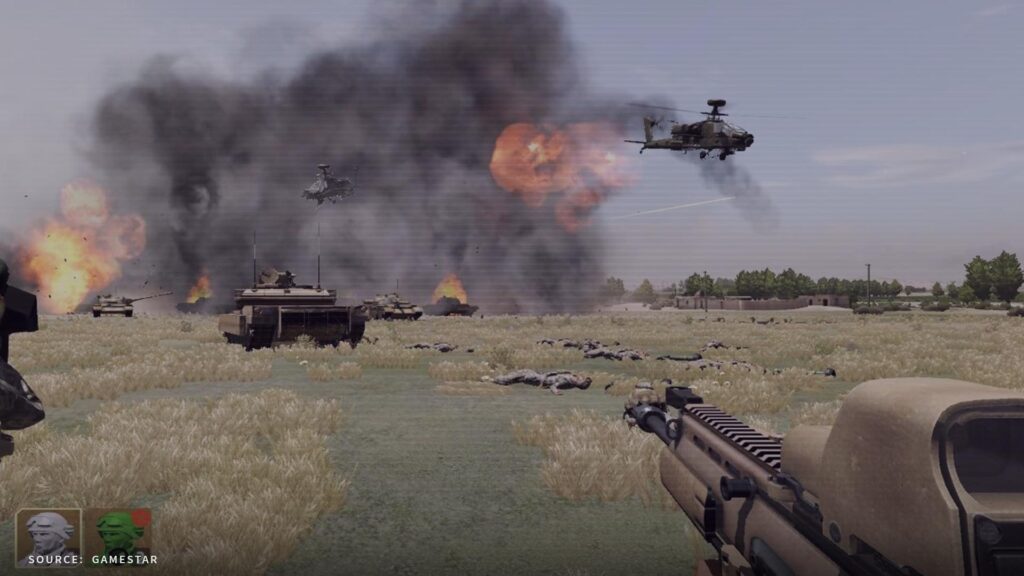
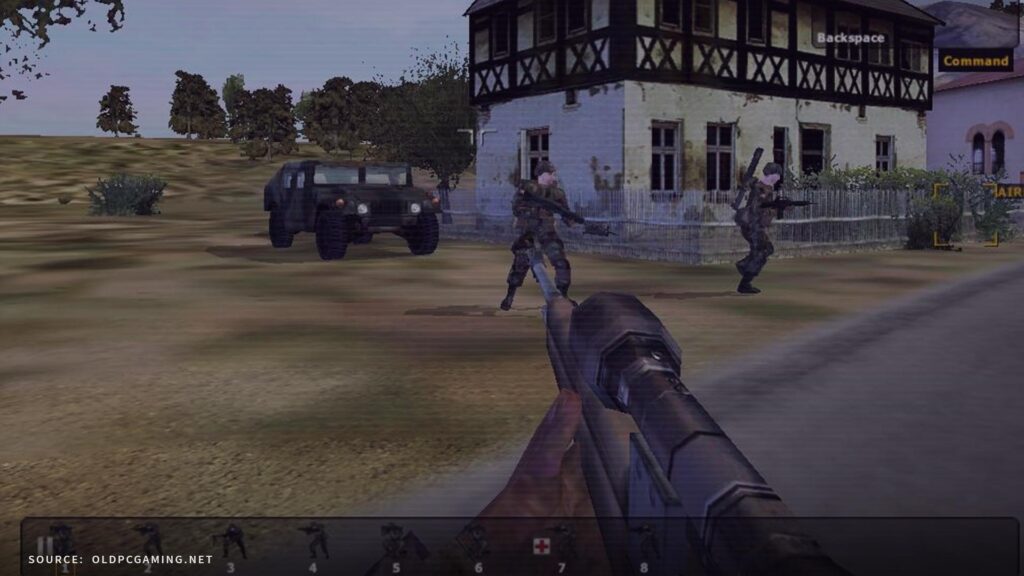
On top of that, it’s heavily moddable and allows users to create multitudes of new vehicles, game modes and other additional features. Dean Hall was also familiar with these modding tools, using them for a rather unusual purpose when he served as officer for the army of New Zealand. He used the game’s editing tools and mission scripting capabilities to create training scenarios for soldiers. They were often confronted with difficult situations and moral decisions that were nearly impossible to reproduce outside of a game.
Hall is also a big outdoor enthusiast and took part in certain survival trainings himself, which helped shaping the vision for DayZ later on. When he took up Arma’s modding tools, it made sense for him to keep the military realism but also add a couple of new ideas for his first project “Recreation”. Players controlled a survivor in a zombie-infested world and focused on exploring and surviving in a post-apocalyptic environment. It was done in 2011 and can be seen as the precursor to what should become DayZ one year later.
On a side note, Hall worked as game designer for “Take on Helicopters”, also developed by Bohemia Interactive, in 2011. While not directly linked to the making of DayZ, this project further honed Hall’s skills and allowed him to gain more experience working with Bohemia Interactive. This should prove very helpful in the long run because in 2012, Hall released the DayZ mod for Arma 2 to great success and public attention.
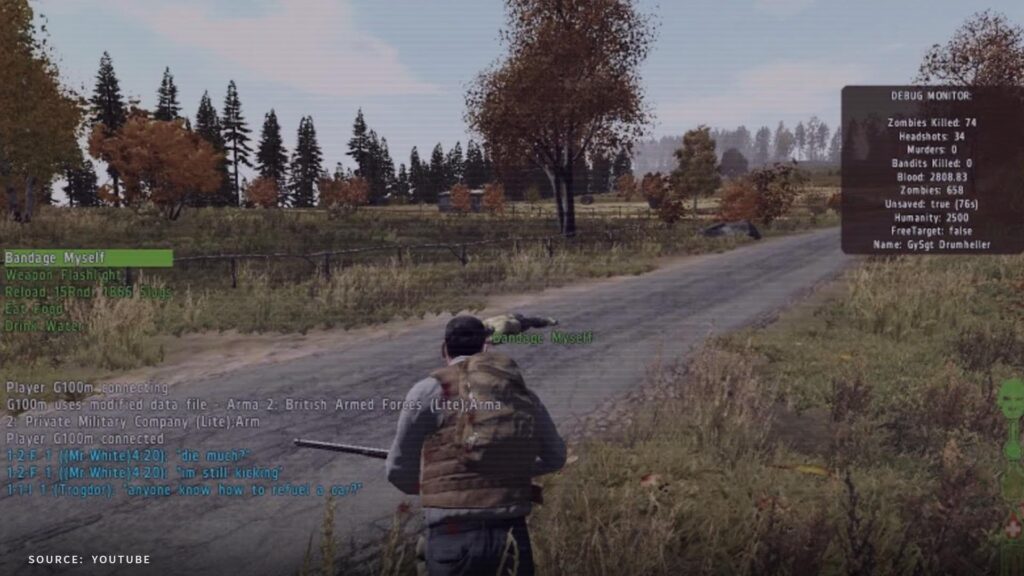
Similar to his prior Project “Recreation”, players were thrust into a post-apocalyptic world overrun by zombies, where they had to scavenge for supplies and fight for survival. However, interacting with other players became notably important and difficult at the same time. People weren’t bound to work together which made it very clear, very soon, that players would do everything for survival. Work in a team just to shoot their brother in arms after they’ve cleared a dangerous complex together.
Granted, at this early stage of development, bugs were more dangerous than any of the game world’s hazards combined. However, there was a yet unseen beauty to the chaos of Chernarus, the fictional post-Sovjet country that Hall took over from the original Arma 2. Playing together with a friend became nigh impossible, once one of the members died and respawned on a random, far away place on the map, but people still insisted on trying DayZ together.
The mod became a hit on Steam and Arma 2, which had already been around for roughly 3 years, skyrocketed the Steam Charts. DayZ was only playable if you owned a copy of Arma 2, which led to 300.000 sold copies in a span of two months, which is an impressive number for a game that is already three years old. In July 2012, only 3 months after the initial release of DayZ, nearly 1 Million unique players had already tried their luck and died of hunger, thirst, zombies and other survivors.
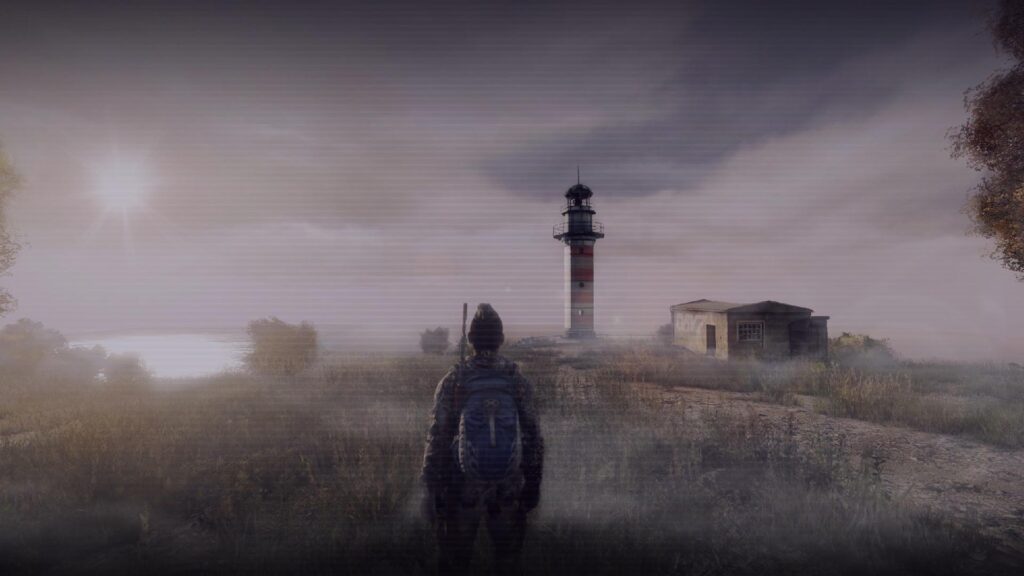
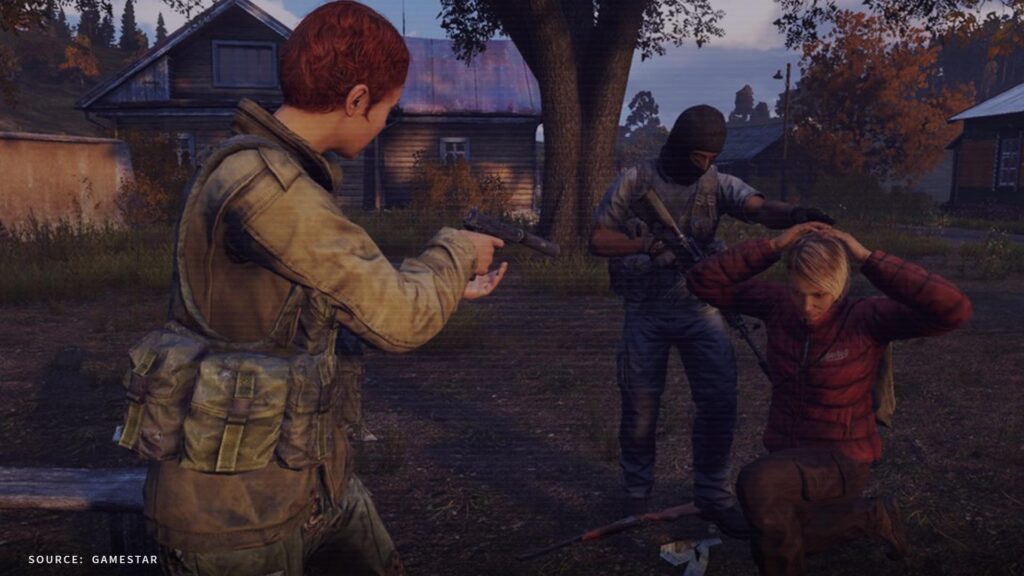
The success of DayZ and the obvious increase in sales of Arma 2 eventually made Bohemia Interactive realize that the mod’s potential could be turned into a standalone game, in cooperation with Dean Hall. As creator of the original DayZ Mod, he provided the creative vision and direction for the standalone game, shaping different aspects of the core gameplay mechanics and features, while keeping the realistic survival elements of the original mod intact.
He also took over project leadership and was actively involved in engaging with the community, gathering feedback that would eventually impact the development process. The standalone DayZ launched in late 2013, after what is often described as “chaotic production”, to great success. The game sold 400.000 copies in the first week and hit 1 Million units after a month. This is even more impressive considering the fact that DayZ launched into Early Access, which it didn’t leave for five more years to come.
Receptions were mixed, due to the amounts of bugs and server issues that plagued the game after launch. People weren’t yet used to the concept of a game in Early Access as Valve had just established this kind of active development involvement for players in March 2013, only a couple of months prior to the Launch of DayZ. Together with Rust and Starbound, DayZ was the biggest title in Early Access yet and would unfortunately become synonymous for games that linger in this kind of ongoing state for years.
It would also kickstart an influx of survival games that had neither the depth nor the experienced background of DayZ, putting the concept of Early Access under heavy pressure. In 2014, Dean Hall left the development team on mutual terms, as he felt that his vision was established and he had to move on, chasing new challenges. He founded the studio Rocketwerkz, creating more hits like the space survival exploration Stationeers and Icarus, a new take on survival that offers players the chance to engage in timed missions and outposts apart from the usual survival open world mode.
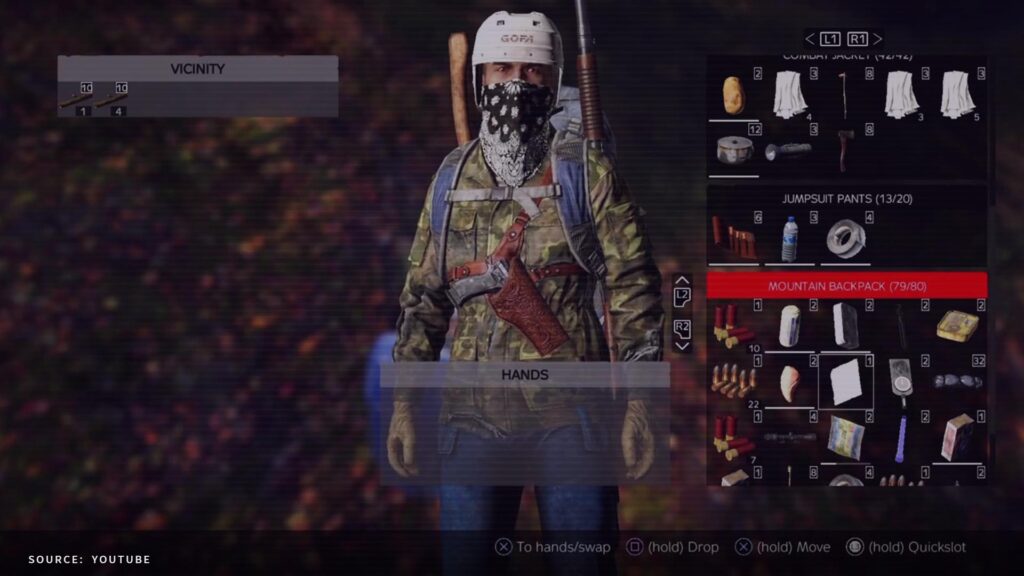
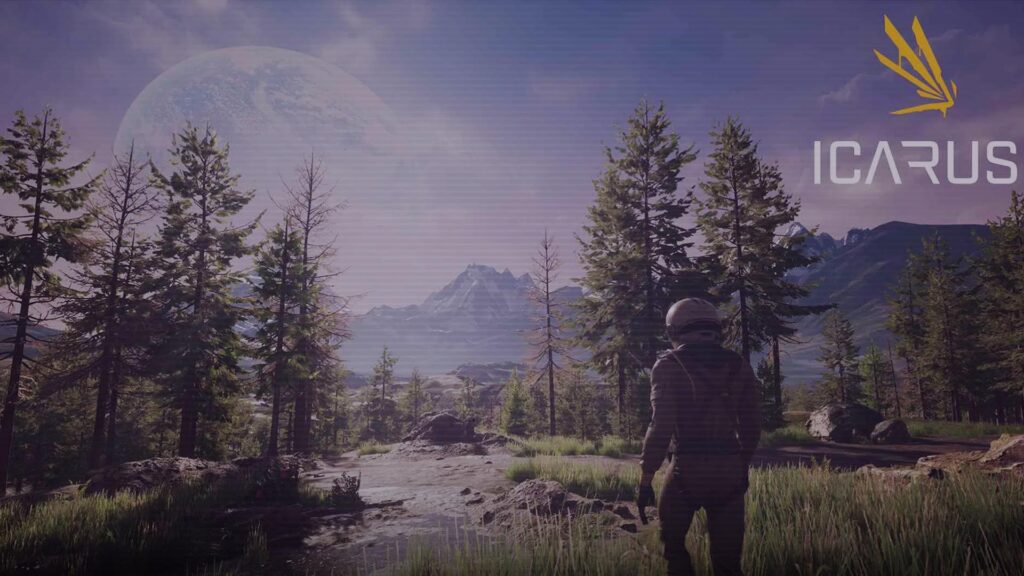
The team at Bohemia Interactive remained the same and put much effort into the process of developing a game of unseen proportions. Imagine a world with a near infinite amount of objects, filled with zombies and players. The combinations of things that can possibly go wrong ─ bugs ─ are endless. Regardless of countless bugs and cheaters, the game began to thrive. The combination of survival and human interaction was too intriguing for many players, who felt that improvements were kicking in.
Today, five years after the official release, DayZ is more active than ever, hitting a new peak of concurrent players in April 2022. The game regularly receives updates of minor and major proportions, like a new ─ paid ─ dlc in 2019, further expanding the already impressive map. DayZ might not be on the forefront of genre-shaping ideas anymore but in 2012 it changed how players perceived a game that focuses on survival against all odds.
You could argue that games like Minecraft already forced players to actively engage with their environment as a means to survive. However, DayZ is widely seen as the pioneer for the zombie survival genre. Instead of simply putting players in heavy armor, equipped with a wide array of weapons from the start, they had to scavenge and earn everything that led to a slight progress. Furthermore, death came with the hefty penalty of losing everything, albeit with the exception of knowledge.
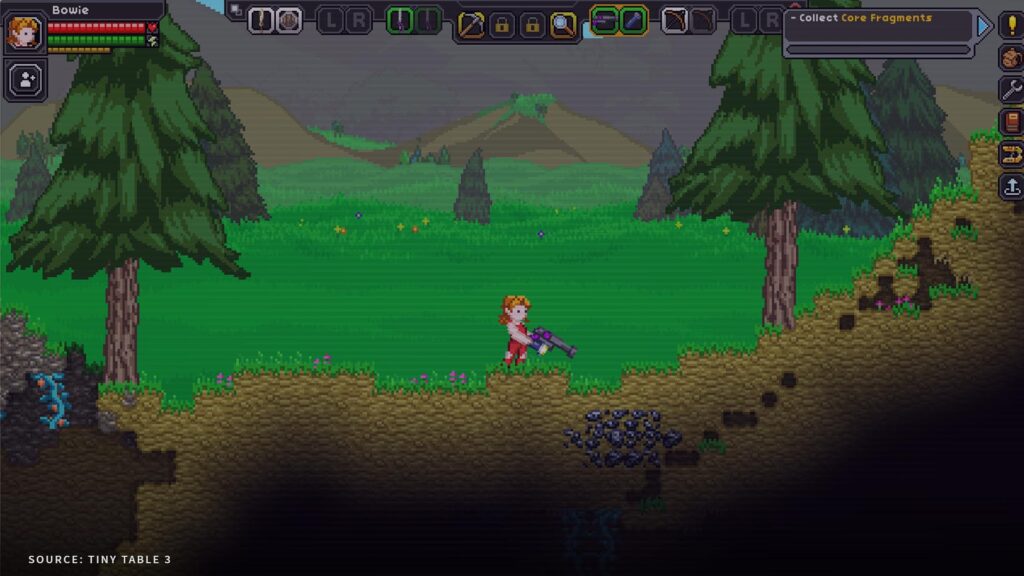
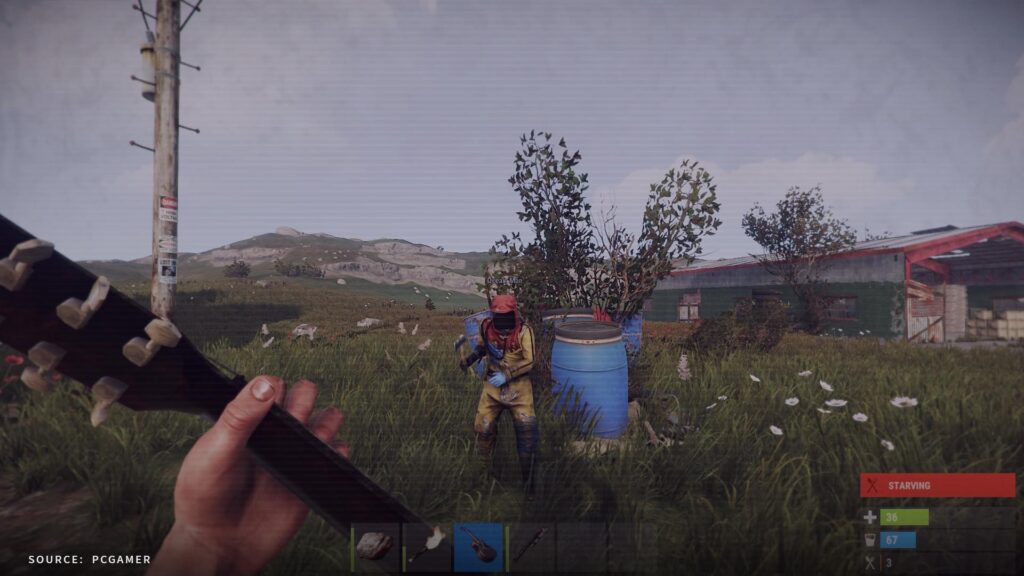
Every new start was meant to become more defined than the one before, knowing where to search for food, how to cook or make a bandage for a splintered leg. Once players became masters of the environment, they still had to deal with other survivors. Conflicts, which often lead to the alliances that could fall apart in a heartbeat, and the creation of a player driven narrative became the hallmark of a new generation of survival games. Many of these successors failed to understand that it is not enough to give players a huge map but force them to act instinctively.
The psychological aspects and the unpredictability of human behavior under the heat of battle and struggle for survival of DayZ would later become (re-)defined in a whole new genre. The term Battle Royal was already known, as players created mods for Arma 2 and games like H1Z1, that started on the foundation built by DayZ, introduced a game mode called King of the Kill. However, the now famously known player Brendan Green, the “PlayerUnknown”, always wanted to create something that made dying more impactful for any fps player.
Instead of respawning, you only had one life, meaning you’d carefully consider your options whenever you approach a new situation. DayZ was by no means the first game that pitted players against each other but its core survival aspects could later also be found in PlayerUnknown Battlegrounds, the most played game of 2017/2018. Battle Royales have been the industry driving factor ever since, with games like Fortnite and Call of Duty: Warzone attracting millions of players on different platforms as well as viewers on Twitch.
DayZ also showed that, while a game in Early Access might be prone to negative reviews of players who often times don’t understand that the concept of a game in development includes the high chance of being affected by bugs, it is still possible to pick up useful feedback and add new mechanics to a core idea. Early Access has become a very common industry practice today. Even though there are still those games commonly referred to with the slur “cashgrab”, there are positive examples like Hades, Kerbal Space Program or the aforementioned PlayerUnknown Battlegrounds.
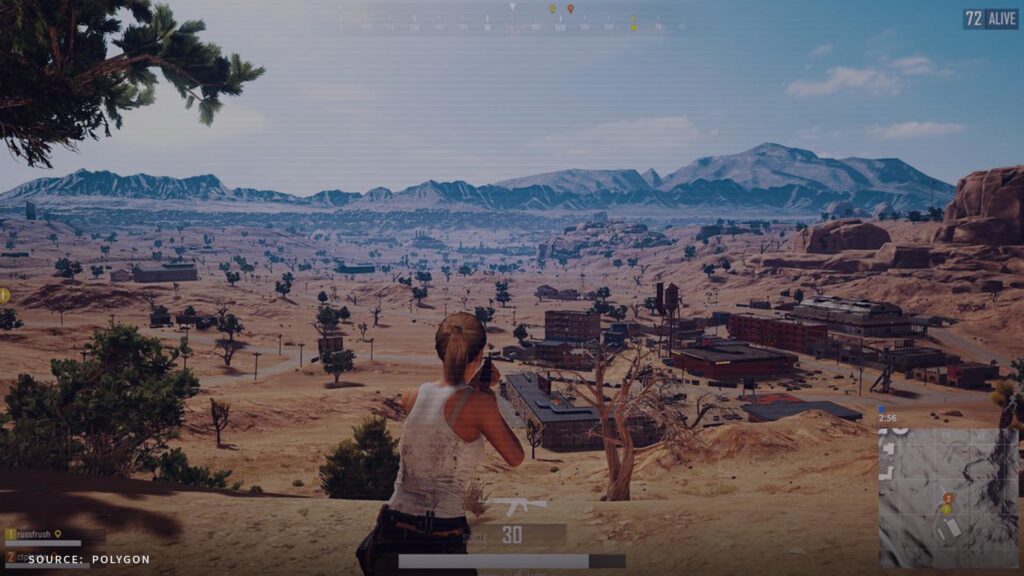
There are different servers for all kinds of game modes, with focuses on battle royal, role playing or simple player-versus-environment-only respectively. Multiplayer never felt the same with many games adapting to the style of unpredictable player interactions, essentially creating stories of their own despite the absence of main quests. Modding was and will always be a big part of the DayZ success story, as it is common with many popular titles today.
Since multiplayer is one of the key aspects of modern day gaming and one of the driving factors for players to create private servers as a means to inhabit their own worlds with friends, it would be foolish to neglect the importance of a game like PlayerUnknown Battlegrounds and similar titles that rose with and around this new wave of Battle Royales. Expect a deep dive into the story behind the “PlayerUnknown” and the massive tidal wave that erupted through the gaming industry in our next part of From Pong to Ping.

















